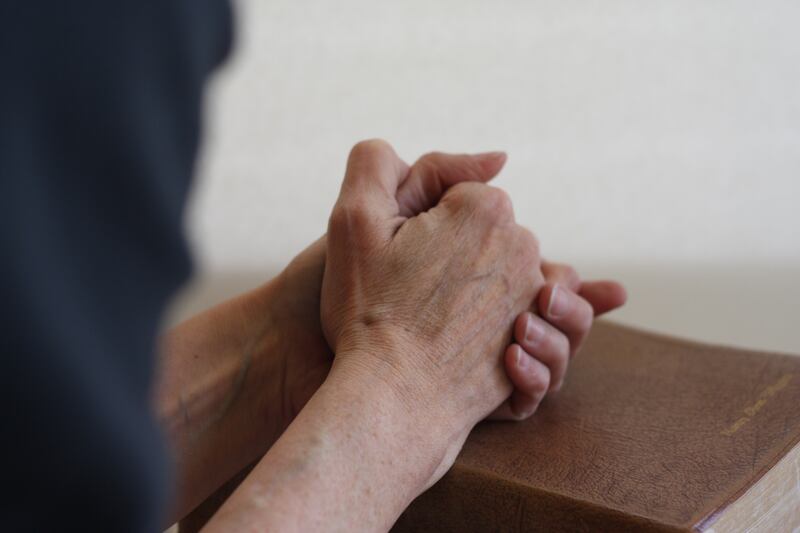When renowned 19th-century British social reformer Josephine Butler and her husband, George, returned home from an outing with friends, her 4-year-old daughter Eva rushed to the fourth-story railing to greet her parents and plunged over onto the stone floor below. She lived only a few, short hours.
For five decades thereafter, Josephine never missed a day without thinking of and mourning her daughter’s passing. At first, the tragedy consumed her and George but through faithful, persistent prayer, she gained strength to go on and a better understanding of her daughter’s unexpected death.
Eva’s passing was only one among myriad events that continuously drove Josephine to her knees in fervent prayer with God. She sought his counsel as she worked to repeal state-regulated prostitution in Britain and observed the degradation it imposed upon all women. She sought him for help in her role as a wife and a mother. She sought him during her lifelong campaigns to stymie human trafficking, as she entered haunts, brothels, madhouses and prisons to rescue women and children viciously enslaved in sexual servitude. She sought him as she held her “beloved, dying, and diseased treasures” in her arms, until their return to God.
In 1904, near the end of a long, arduous and distinguished life — rooted in prayer — she wrote a dear, trusted friend, and the message is shared in "Portrait of Josephine Butler" by A.S.G. Butler:
"As we get nearer to God, all prayer resolves itself into communion. … In prayer, I am still, silent, waiting for the spirit; and the Spirit is granted, so that he prompts every request. I offer my requests fearlessly, because He has put them in my heart, because He has prompted every one, even to the smallest. It is as if the Lord came to my room and sat down beside me. I am awed. I don’t begin to speak at once; I wait for him to begin. O! it is so sweet when all prayer becomes communion with a Friend — a Friend who already knows all my heart, all my circumstances and needs; and a Friend so (majestic), so powerful, … nothing less that the Creator, Redeemed and sanctified, 'by whom all things were made.' …
"All this is so sacred that I do not like to go further. Thankfully I will accept any word of help in a book; but I find the only vital, lasting, all-powerful help is such as he gives direct."
The apostle Paul, alluded to what Josephine experienced in Romans 8:26, “for we know not what we should pray for as we ought; but the Spirit itself maketh intercession for us with groanings which cannot be uttered.”
An incident in 3 Nephi in the Book of Mormon confirms the validity — indeed, parallels — Josephine’s experience. After learning that Jesus had appeared at the temple, many labored all night to arrive there the next morning. After praying for the Holy Ghost, the Twelve and the multitude were baptized, angels ministered, and Jesus appeared. He commanded them to kneel and pray and went off and prayed for all “those who shall believe on (his Apostles’) words. …” When Jesus “came unto his disciples … they did still continue without ceasing, to pray unto him; and they did not multiply many words, for it was given unto them what they should pray” (see 3 Nephi 19:23-24)
Josephine’s grandson said of his grandmother, “She knew God,” and shared her practices in prayer in "Portrait of Josephine Butler":
• “definiteness of purpose"
• "concentration of energy on this purpose"
• "self-mastery throughout the whole undertaking, … best when it is perfectly still … a(nd) no mere fitful or occasional approach to God is enough … (but) constant abiding in (his) presence.”
While attending to trafficked women and children in Switzerland, Josephine described and is recorded in "Our Medical Home for Women. Mrs. Josephine E. Butler’s Address at the Opening":
"One day a little girl rolled in blankets was sent to us … such a dreadful sight that we could scarcely look at her. She was the victim of other’s sins, and was one mass of disease …. We laid her in her bed … and said among ourselves, ‘What shall we do? ... We have no doctor.' And I went home … and I remember saying, … 'Lord, Thou hast sent us this … little corpse, what are we to do with it? Thou art the resurrection and the life.' … I know there is a God in heaven who answers prayer, and a God that would have us (speaking reverently) try experiments with him …
"The next day I went to the door and my Swiss friend met me full of joy. … This is what God did: The evening before, the matron and my Swiss friend … saw the poor child was suffering dreadfully. They knelt down and spoke to her of the Lord Jesus, … (how) the Lord went about healing people, 'do you believe it'? and she said, 'Yes.' … 'Do you think that he will heal you now'? 'Oh, yes …'
"These two knelt down and gave her into the hands of the Lord. … The next morning the child was up first, and downstairs ready for breakfast. … In a few days she was perfectly free from disease, her skin perfectly clear, she was well from that time (forward).”
Josephine Butler’s prayers, and those of the Nephite apostles, provide a masterful example of the blessings and benefits of sincere, heartfelt communion with God. We would each do well to prepare ourselves and spend more and devoted time in earnest, faithful prayer.


